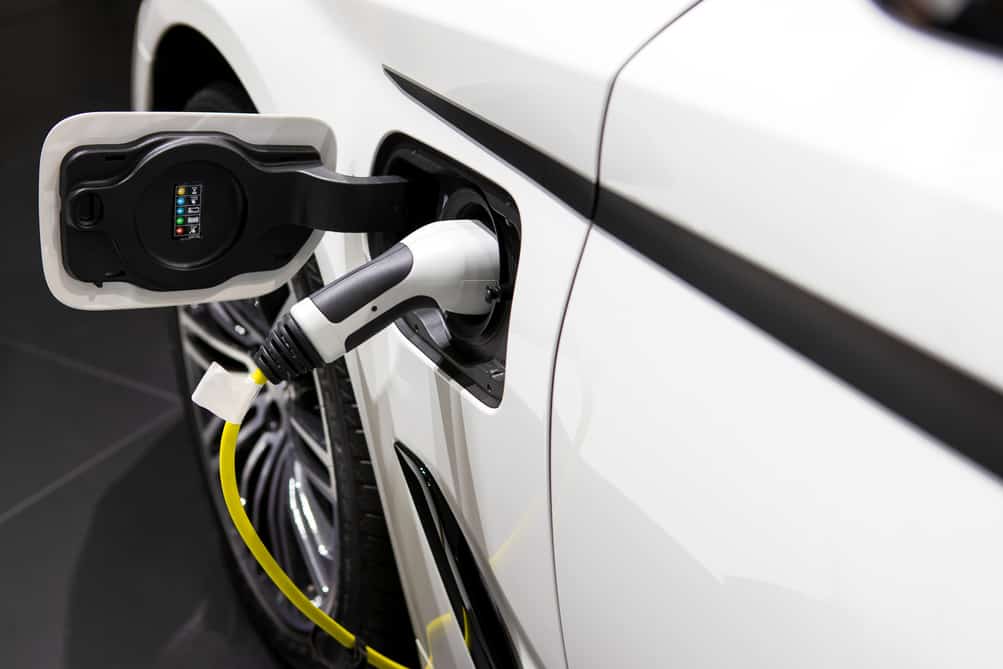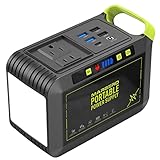Are you, as a proud owner of an electric car, wondering: can a portable generator charge an electric car? Did you know that backup generators can power up an electric vehicle for up to 10 hours, depending on their capacity? This blog will unravel the complexities around using a generator to juice up your EV and help you understand its feasibility, advantages, and limitations.
Key Takeaways
- Portable generators can be used to charge electric cars, but there are limitations and challenges.
- Charging with a portable generator can be slow and lengthy compared to home charging stations or public outlets.
- Compatibility between the generator and electric car charger is crucial for safe and effective charging.
- Understanding the load capacity of a generator is important when charging an electric car.
Understanding How Portable Generators Work
Portable generators provide a convenient power source during blackouts or in areas without access to the electrical grid. They create electricity through an internal combustion engine that burns fuel, usually gasoline or diesel.
During operation, mechanical energy from the burning fuel converts into electrical energy, offering immediate power output.
These machines have critical components like a starter motor for initial ignition and an alternator for producing voltage. Regular maintenance ensures a long life and efficient functioning of these systems.
An important detail is how portable generators produce alternating current (AC), which is compatible with most household devices and electric cars. However, charging your electric vehicle using a portable generator can turn out slow due to various factors: capacity, load limit, and efficiency.
Can a Portable Generator Charge an Electric Car?
Portable generators can be used to charge an electric car, but there are limitations and challenges to consider.
Limitations and challenges
Charging an electric vehicle with a portable generator poses significant risks and challenges. A major drawback lies in the compatibility issues between generators and certain electric car models.
For instance, upscale vehicles like the Tesla or BMW i3 may need electrical component rewiring before they can accept charge from a portable generator. This process is not only costly but also time-consuming.
Furthermore, using a portable generator for EV charging involves a slow and lengthy procedure that can be inconvenient. The power output of most portable units often falls short of what’s required to fully charge an electric car within reasonable time frames.
Moreover, hooking up an incompatible generator could damage your vehicle’s battery or other critical electrical parts, resulting in hefty repair bills.
The Slow and Lengthy Charging Process
Charging an electric vehicle using a portable generator is not a swift process. It’s a method that demands time and patience, often more than home charging stations or public outlets.
Even with the right generator, fully charging your car may be an overnight task simply due to the limitations in power output from these backup sources. This lengthy charge time makes using a portable generator as your main source of EV charging less practical for many people.
Nonetheless, it remains an option for those in areas with frequent power outages or limited access to dedicated EV chargers.
Compatibility issues
Compatibility between the portable generator and electric vehicle charger is crucial when charging an electric car. The charger needs to be compatible with the generator’s electrical output in terms of voltage and frequency.
Ensuring compatibility ensures safe and effective charging for your electric car. So, it’s important to check the specifications of the generator and your EV charger before attempting to charge your vehicle.
Understanding the Load Capacity of Portable Generators
Most portable generators have a specific load capacity, which refers to their maximum power. This load capacity is measured in watts and determines how many electrical devices or appliances you can run simultaneously.
When charging an electric car with a portable generator, it’s crucial to understand the load capacity. Electric vehicles typically require higher power levels for charging, so you must ensure that the generator’s output is adequate.
The size and rating of the generator will determine how fast and far an electric car can go with just one hour of charging. It’s important to note that while a generator may have enough capacity to power up an electric vehicle for up to 10 hours, there may still be limitations depending on various factors, such as battery size and charger efficiency.
Sizing Your Generator: Wattage and Other Considerations
When choosing a generator to charge your electric car, it is crucial to consider the wattage and other important factors. The generator size you need depends on your vehicle’s battery capacity and how quickly you want to charge it.
Electric cars typically require charging at a rate of kilowatts or even tens of kilowatts. Therefore, selecting a generator with sufficient wattage output is essential to meet these demands.
Additionally, compatibility with your electric car’s charger is another consideration when sizing your generator. By carefully considering these factors, you can ensure that your chosen generator will provide enough power to charge your electric car without any issues or limitations.
Backup Power Options for Electric Vehicle Owners
Electric vehicle owners have alternative options for backup power, such as using backup batteries or exploring the feasibility of charging with them.
Using backup batteries
Backup batteries can be viable for charging electric vehicles (EVs) when traditional power sources are unavailable. These portable batteries, which store energy from solar panels or the grid, can provide an emergency power supply to charge your EV.
With advancements in battery technology, backup batteries are becoming more efficient and powerful. While they may not offer the same range as a generator, they can still be useful for short trips or powering essential functions until you can access a charging station or mains electricity again.
Exploring the feasibility of charging with backup batteries
Backup batteries offer a viable option for charging electric vehicles. These batteries can store power and provide a convenient backup source when the main power supply is unavailable.
With advancements in battery technology, backup batteries are becoming more efficient and capable of storing greater energy. This makes them an attractive solution for EV owners who want a reliable and sustainable way to charge their vehicles, especially during power outages or when access to charging stations is limited.
The Future of EV Charging with Generators and Backup Batteries
Advancements in technology are paving the way for eco-friendly alternative energy solutions and enhancing the ability to charge electric vehicles using generators and backup batteries.
Advancements in technology
Advancements in technology have greatly impacted the electric vehicle industry, making it more convenient and accessible than ever before. Innovations in EV charging technology are constantly being developed, promising exciting improvements in the future.
These advancements include advanced energy storage options such as batteries, which play a crucial role in improving the reliability and modernization of electric grids. Additionally, researchers are studying the use of renewable energy-based charging infrastructure for electric vehicles, further enhancing sustainable energy solutions.
As technology evolves, we can expect even more efficient and eco-friendly ways to charge our electric vehicles.
Sustainable energy solutions
Sustainable energy solutions are the key to a greener future for electric vehicle charging. Renewable energy sources, such as solar panels and wind turbines, provide a clean and renewable power supply that can be used to charge electric cars.
These sustainable energy solutions reduce our carbon footprint and offer cost-effective and reliable alternatives to traditional fossil fuel-based electricity. With technological advancements, we can expect more efficient and accessible options for generating renewable energy to power our electric vehicles.
As we strive towards a more sustainable future, embracing these energy solutions is crucial for reducing dependence on non-renewable resources and mitigating climate change.
Conclusion
Charging an electric car with a portable generator is feasible. However, there are limitations and challenges to consider. The charging process can be slow and lengthy, and compatibility issues may arise.
Despite these hurdles, using a generator offers more control and flexibility for EV owners in certain situations. As technology advances, we may see more sustainable energy solutions that make using generators for EV charging even more efficient and practical.
FAQ
How do I choose the right generator for my EV, and what technical specs matter most?
For safe and effective charging, your generator should provide at least 240V output and ideally 7,200–10,000 watts (7.2–10 kW) for Level 2 charging. Most portable generators only offer 120V, which results in very slow charging—often requiring overnight or longer.
Look for a pure sine wave or inverter generator to protect your EV’s electronics. Always check your EV’s manual for voltage, amperage, and connector requirements before charging.
What are the main safety precautions when charging an EV with a generator?
Operate your generator outdoors in a well-ventilated area to avoid carbon monoxide buildup. Ensure the generator is properly grounded—some EVs will refuse to charge if grounding is inadequate.
Use a GFCI breaker for extra protection, never overload your generator, and monitor for overheating. Use only cables and adapters rated for your generator’s output and your EV’s charging specs.
Can charging with a generator damage my EV or void my warranty?
Yes, using an incompatible or low-quality generator can damage your EV’s battery or charging system. Some manufacturers may void your warranty if damage results from charging with an unapproved power source.
Consult your vehicle’s warranty terms and speak with your dealer or manufacturer before using a generator.
Are there specific generator types better suited for EV charging?
Pure sine wave and inverter generators are best, as they deliver clean, stable power that modern EVs require. Larger stationary generators are more likely to meet EV charging needs, while most portable models are only suitable for emergency or very slow charging.
How long will it take to charge my EV with a portable generator?
Charging time depends on your generator’s output and your EV’s battery size. With a typical portable generator (3,000–8,000 watts), expect Level 1 charging speeds—often 10–20 hours or more for a full charge. Only high-capacity generators (at least 7,200 watts, 240V) can achieve Level 2 speeds (4–8 hours).
What are the best practices for using a generator to charge my EV?
- Consult your EV manufacturer for compatibility.
- Start with the lowest charging rate, then increase if safe.
- Monitor the generator and cables for heat or faults.
- Use only adapters and cords rated for the required amperage.
- Never leave the generator unattended while running.
What alternatives to generators exist for EV backup charging?
Portable backup batteries and solar generators are emerging as cleaner, quieter options. While most can’t fully charge an EV, they can provide enough power for short trips or emergencies. As battery and solar technology advances, these alternatives are becoming more practical.
How is generator-based EV charging likely to change in the future?
Expect improvements in portable battery capacity, solar integration, and generator efficiency. Advances in inverter technology and renewable energy storage will make off-grid and backup charging safer, faster, and more practical for EV owners.








Leave a Reply